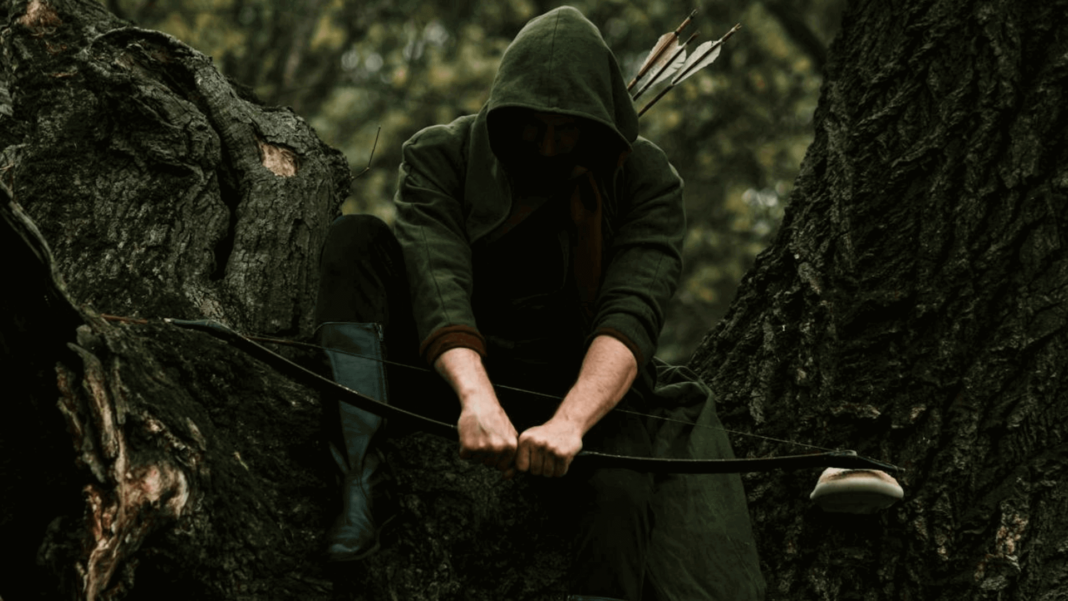Complete Guide to Medieval Ranger Handmade Clothing
If you’re a fan of medieval history, fantasy worlds, or live-action role-playing (LARP), dressing like a medieval ranger can be both exciting and functional. Rangers, known for their skills in survival, archery, and stealth, needed clothing that was practical and protective. Whether you’re gearing up for a Renaissance fair, a cosplay event, or looking to add pieces to your fantasy wardrobe, this guide covers all the essentials of medieval ranger handmade clothing.
Let’s dive into everything a medieval ranger would wear and carry to look and feel authentic.

Medieval Ranger Cloak – (amazon.com)
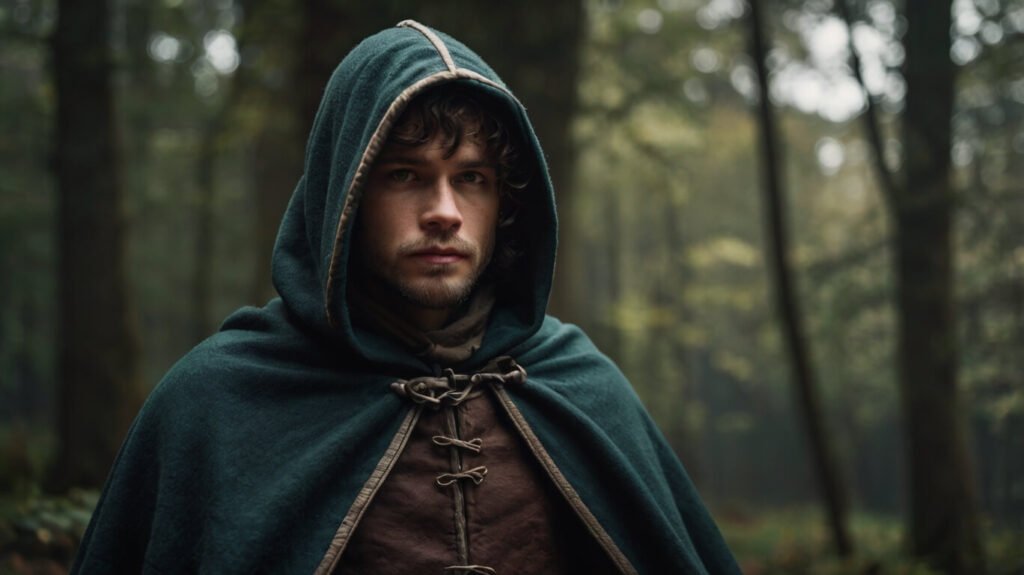
A ranger cloak is one of the most iconic pieces of clothing in a ranger’s wardrobe. Typically made from wool or thick cotton, the cloak provides warmth, protection from the elements, and camouflage in nature. A good cloak should have a hood to shield your face from rain or snow. Dark colors like green, brown, or black help you blend into forested environments, making the ranger cloak essential for anyone wanting to stay hidden or travel unnoticed.
Medieval Ranger Tunic Long Sleeve – (amazon.com)
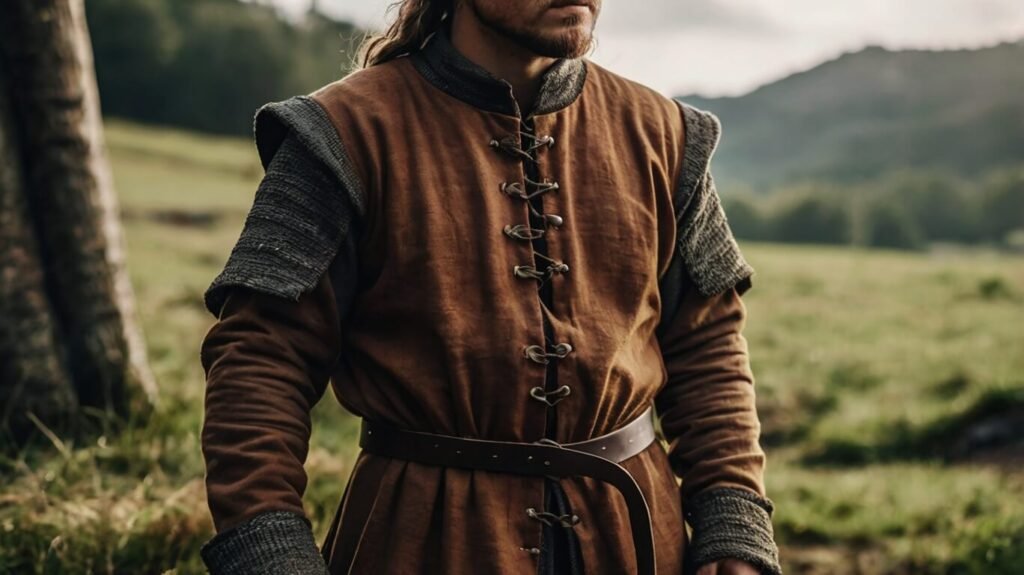
The long-sleeve tunic is the foundation of the ranger’s outfit. It’s simple, durable, and allows for flexibility during movement. Rangers need to be comfortable whether they’re trekking through the woods or engaged in combat, so the tunic is usually made from linen, wool, or cotton. Long sleeves provide extra coverage and can be layered with armor. Earthy tones like greens, browns, or grays will keep your outfit true to the rugged, natural ranger aesthetic.
Medieval Ranger Leather Tunic – (amazon)
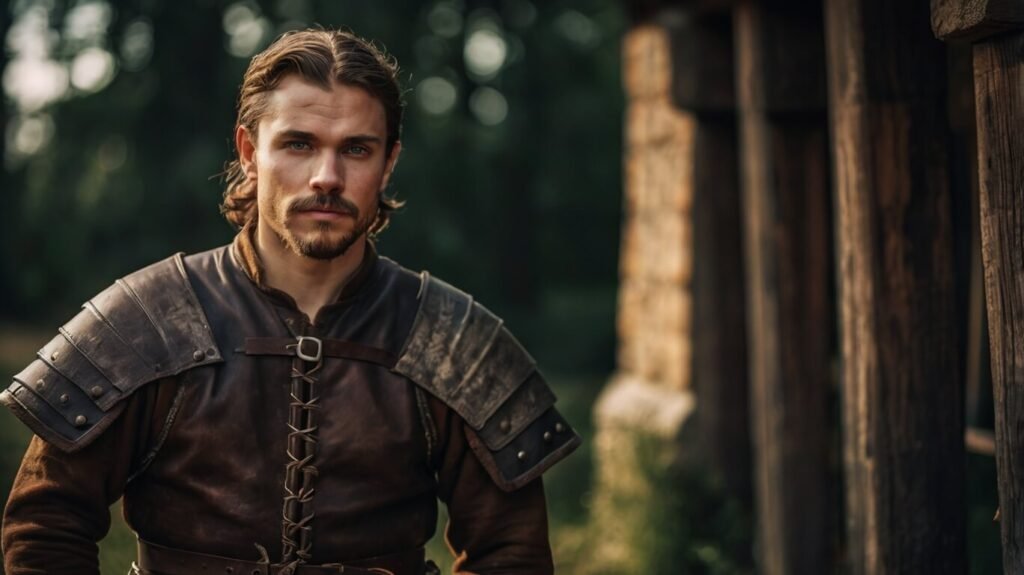
For extra protection, especially in combat situations, rangers would wear a leather tunic. This tunic provides a layer of light armor without restricting movement. Leather tunics are durable, weather-resistant, and add an extra layer of defense while giving you a rugged, warrior-like appearance. A well-crafted leather tunic is ideal for anyone looking to combine practicality and style.
Medieval Ranger Sash – (amazon.com)

A ranger sash is a versatile and practical piece of clothing. Wrapped around the waist or worn across the body, the sash helps secure weapons, pouches, and tools. It adds a bit of style to your outfit while giving you a functional place to carry smaller gear like knives or flint for starting a fire.
Waxed Canvas Shoulder Bag – (amazon.com)
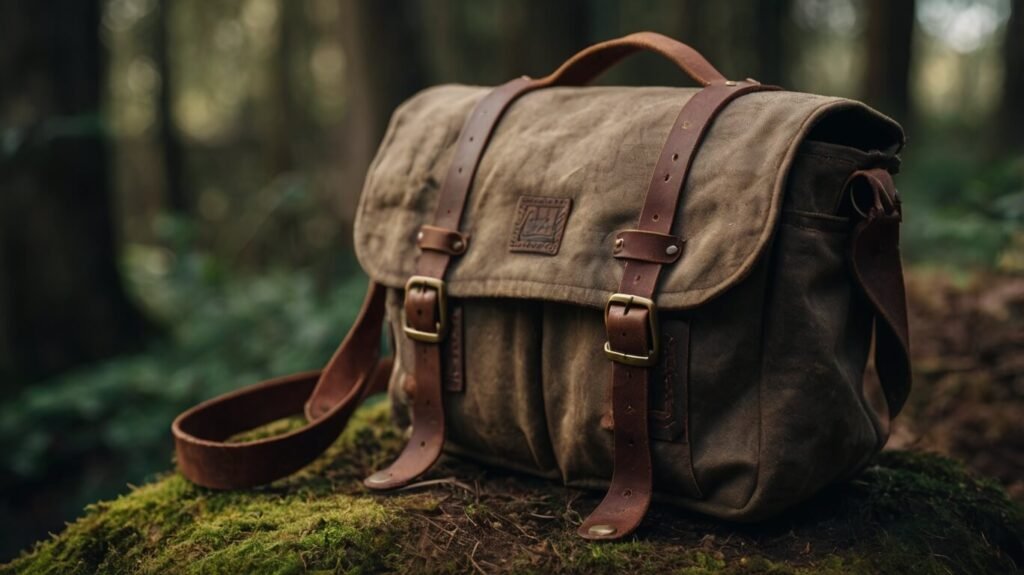
A ranger’s adventures often take them far from home, so a shoulder bag is essential for carrying supplies. A waxed canvas shoulder bag is perfect for its waterproof qualities and durability. You can store food, maps, tools, and other survival gear in it. The cross-body design keeps the bag close and comfortable, freeing your hands for shooting a bow or wielding a sword.
Medieval Ranger Face Mask – (amazon.com)
When navigating through wild, dusty terrains or in the cold of the night, a ranger’s face mask offers both protection and concealment. Made from breathable fabrics, it keeps dust, dirt, and cold winds away from the face. Some face masks also double as camouflaging gear, helping rangers stay hidden in hostile environments.
Medieval Ranger Collar and Shoulders Set – (amazon.com)

For added protection and style, many rangers opt for a collar and shoulders set made of leather. This piece guards the neck and shoulders from blows or debris during battle or while exploring rough terrain. It’s a functional and stylish addition to your ranger outfit, especially for those who want a more armored look without wearing full metal armor.
Medieval Ranger Pants – (amazon.com)
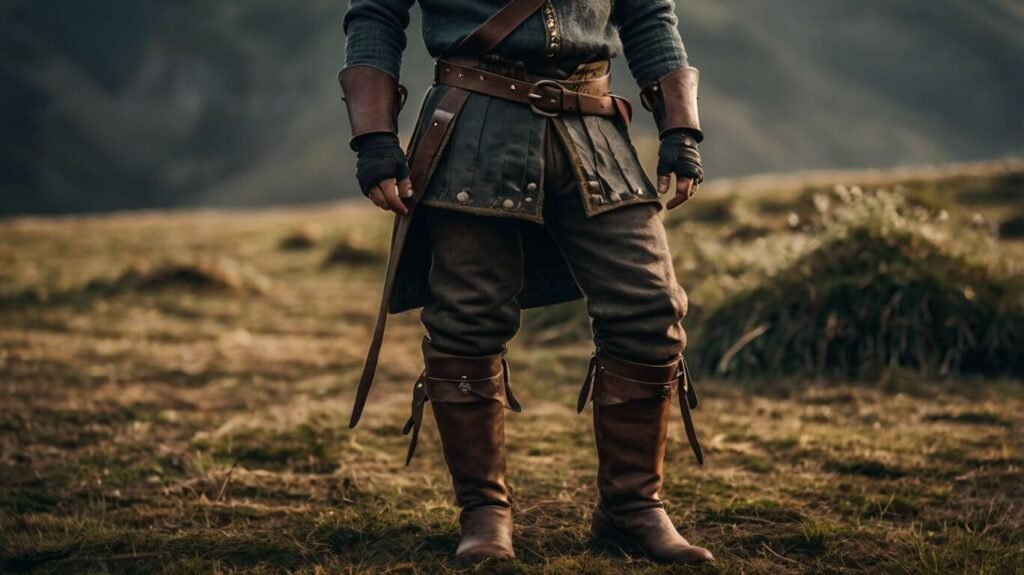
The right pair of pants is crucial for a ranger. They need to be tough but allow for flexibility and movement. Look for durable materials like wool, cotton, or leather blends. Darker colors, especially greens and browns, are ideal for blending into woodland environments. Ranger pants often have reinforced knees and pockets for carrying small tools or items.
Medieval Ranger Boots – (amazon.com)

Comfortable, sturdy boots are a necessity for any ranger. Medieval ranger boots are made from leather and designed to handle long journeys through rugged terrain. They should provide good ankle support, be comfortable enough for long treks, and have a solid grip for uneven or slippery ground. Laced or buckled, these boots complete the authentic ranger look.
Medieval Ranger Sword – (amazon.com)
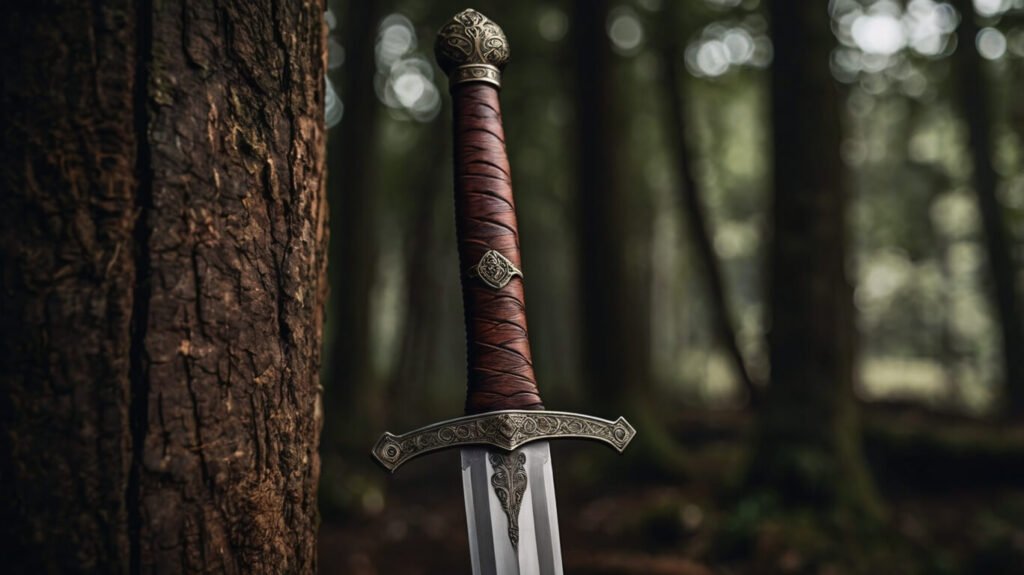
Rangers typically carried lightweight swords that were easy to draw and use in quick, close combat. The ranger sword is usually shorter than a knight’s broadsword, designed for agility and speed. Whether you’re defending yourself in a skirmish or hunting in the woods, a ranger sword is a versatile weapon that you’ll want at your side.
Medieval Bow and Arrows – (amazon.com)
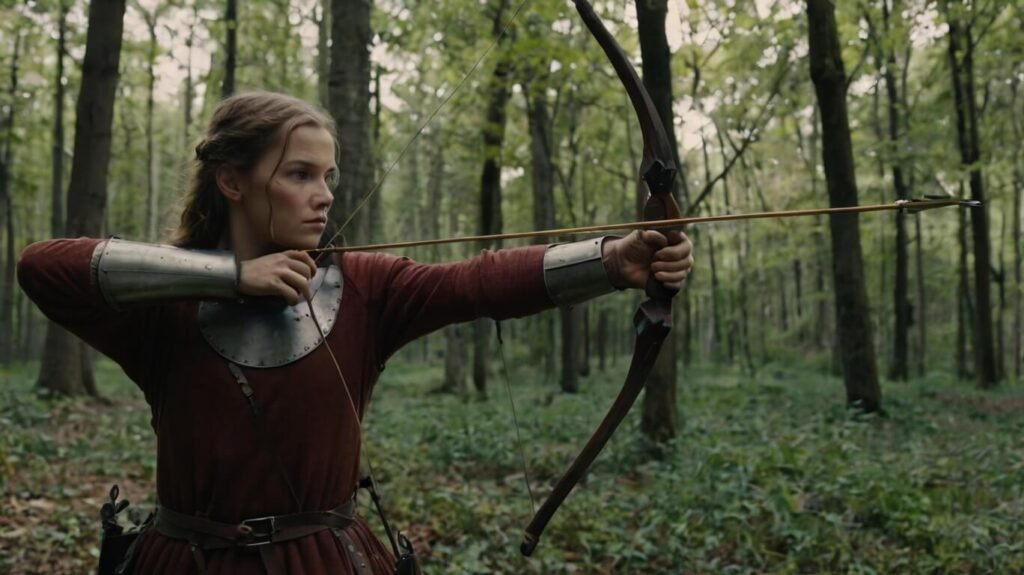
Perhaps the most iconic weapon of a medieval ranger is the bow. A ranger relies on a bow for hunting and defense from a distance. A longbow or recurve bow works well for a ranger, providing range and precision. Always pair your bow with a sturdy set of arrows, ideally kept in a leather quiver (more on that below). Mastering archery is key to embodying the true spirit of a medieval ranger.
Medieval Ranger Bracer Pair – (amazon.com)
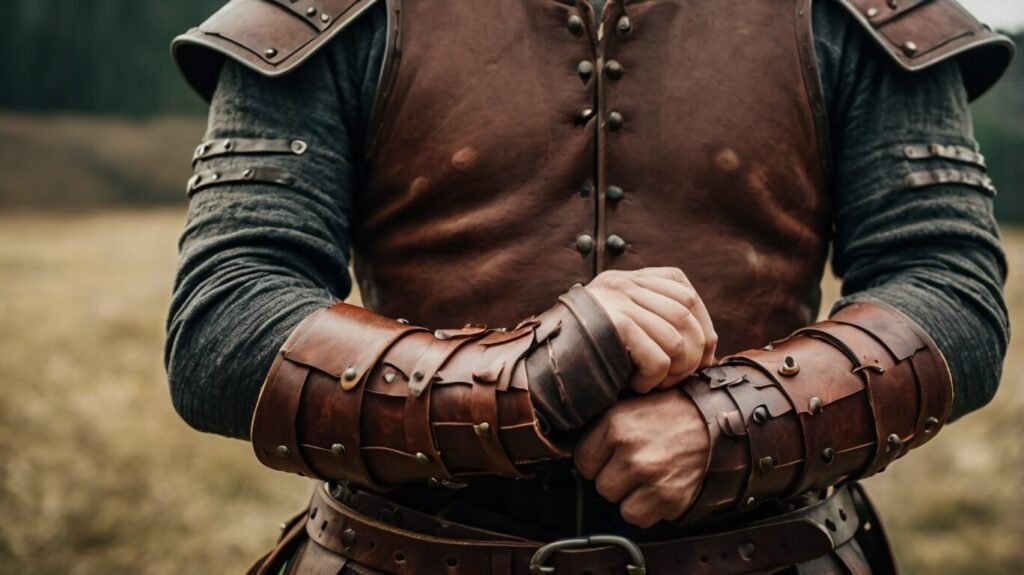
Leather bracers are worn to protect your forearms, especially when using a bow or handling weapons. A pair of sturdy ranger bracers not only adds to the overall rugged look but also shields your arms from the snap of a bowstring or enemy strikes. Look for bracers that are functional but comfortable enough for long wear.
Medieval Ranger Tabard – (amazon.com)

A ranger tabard is a sleeveless garment worn over armor or tunics. Tabards can display symbols, house crests, or just be a simple, functional layer for extra warmth. Most rangers prefer plain, dark-colored tabards, but they still add an extra layer to your outfit, especially when traveling in colder climates.
Medieval Ranger Quiver with Arrow Bag – (amazon.com)
Your quiver is a must for carrying arrows efficiently. A ranger’s quiver should be made from leather, attached to your back or hip for easy access. Many quivers come with an arrow bag, giving you extra storage for more arrows or small tools. Make sure your quiver is sturdy and secure so you can quickly draw arrows in the heat of battle.
Medieval Ranger Leather Armor – (amazon.com)
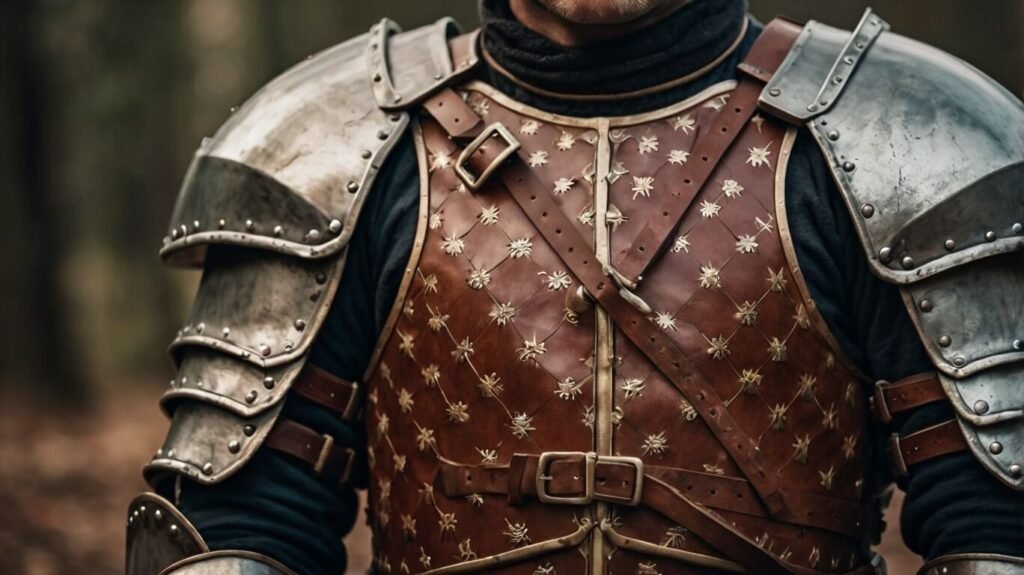
If you’re expecting to face danger, leather armor is a great middle ground between heavy metal armor and lighter fabric. Leather armor is flexible, provides solid protection, and still allows for mobility. It can be worn over a tunic and layered with other armor pieces to create a look that’s both practical and visually striking.
Balanced Side Sword Frog – (amazon.com)
A sword frog is an essential piece of kit for carrying your sword. A balanced side sword frog allows you to keep your sword securely at your waist while still making it easy to draw quickly. It attaches to your belt, giving you the flexibility to carry your sword comfortably as you travel through the wilderness or engage in combat.
Traditional Medieval Belt – (amazon.com)
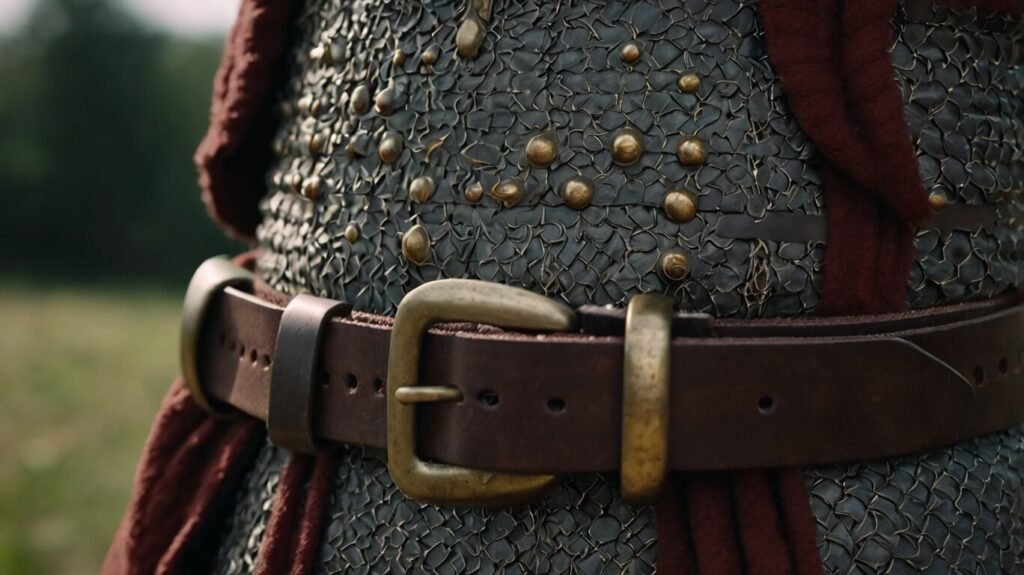
A ranger’s belt is more than just a fashion accessory—it’s functional. A traditional leather belt can hold a sword frog, pouches, or other attachments. Choose a belt that is strong enough to support your gear and long enough to wrap securely around your waist. The right belt will keep your items in place without slowing you down.
Medieval Bedroll Strap – (amazon.com)
Rangers are always on the move and often spend nights in the wild. A bedroll strap lets you carry your bedding easily without stuffing it into your bag. Attach the rolled bedroll to your belt or shoulder strap, leaving room in your bag for other essentials.
Leather Flask Wineskin – (amazon.com)
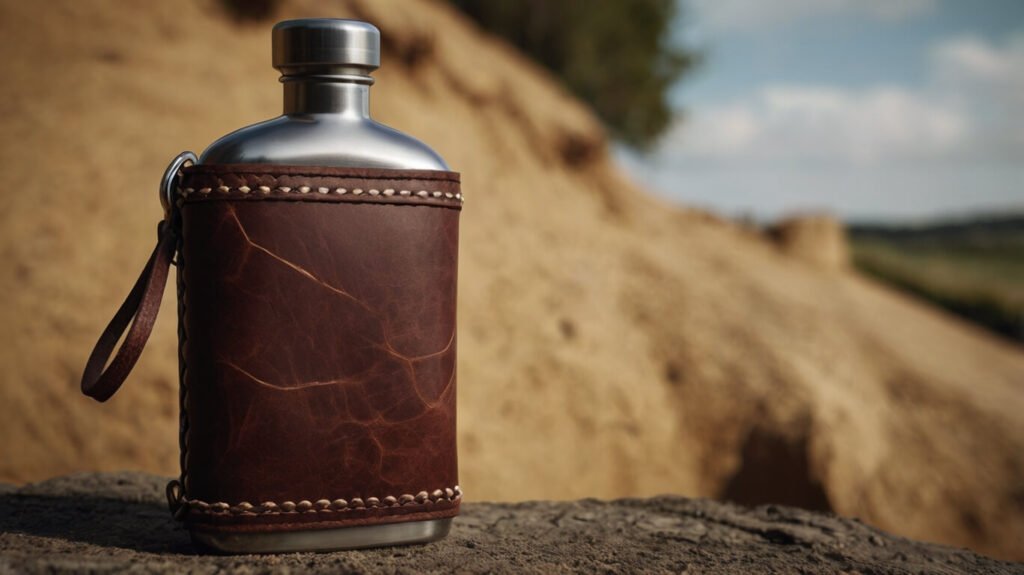
Carrying water or other beverages is important for a ranger’s long travels. A leather flask or wineskin is a stylish and authentic way to stay hydrated. These flasks are durable, functional, and fit perfectly with the rugged ranger aesthetic. Whether you’re sipping water or celebrating a victory with wine, a leather flask is an ideal accessory.
Archery Draw Hand Glove – (amazon.com)
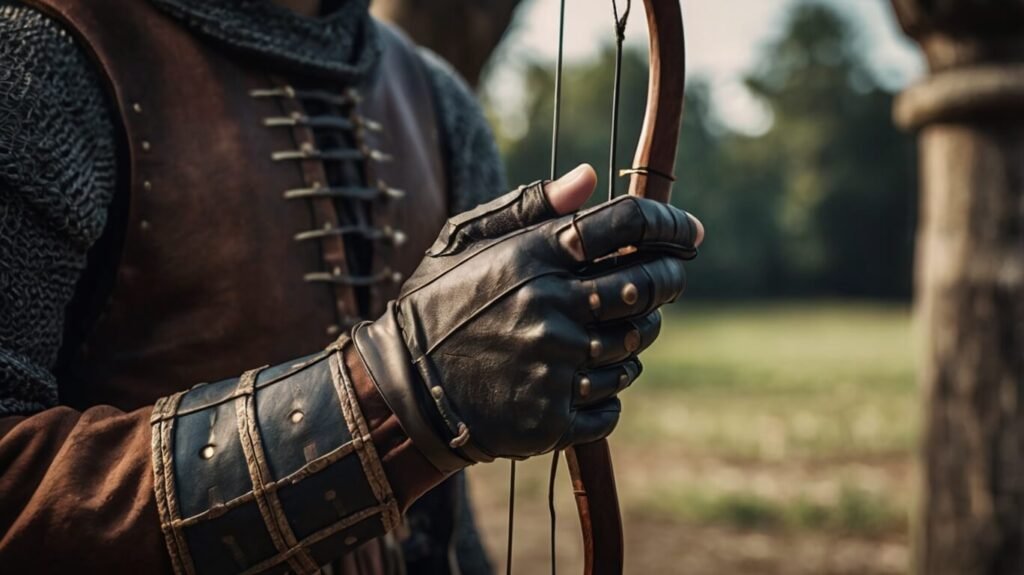
When shooting arrows, protecting your fingers is crucial. An archery draw hand glove provides a layer of protection between your fingers and the bowstring. Made from soft leather, this glove allows for a smooth release of arrows, increasing accuracy and preventing injury. If you’re planning to hone your archery skills, an archery glove is a must-have.
10 Common Questions and Answers About a Medieval Ranger
1. What is a Medieval Ranger?
A Medieval Ranger is a skilled outdoorsman who knows the wild lands, forests, and wilderness like the back of their hand. They are expert trackers, hunters, and scouts, often working to protect their land or kingdom by patrolling borders, gathering information, and guiding others through dangerous areas.
2. What did a Ranger do in medieval times?
Rangers patrolled forests, hunted game, tracked enemies, and scouted new territories. They were often tasked with protecting villagers and travelers from wild animals or bandits. Sometimes, they worked directly for a king or noble, managing forests and ensuring the safety of those lands.
3. What skills did a Medieval Ranger have?
Rangers were skilled in tracking, archery, survival, and stealth. They could move quietly through forests, follow trails left by animals or people, and live off the land. They were also good at navigation, often using the stars or landmarks to find their way.
4. How were Rangers armed?
Rangers typically carried a bow and arrows, as they relied on ranged attacks. Many also carried a short sword or dagger for close combat. They often wore light armor, like leather, so they could move swiftly and quietly without being weighed down.
5. Did Medieval Rangers work alone?
Most rangers worked alone or in small groups. They preferred to stay out of sight and travel quietly through the wilderness. However, they could sometimes be part of larger military units, where they would act as scouts or archers in battles.
6. What kind of people became Rangers?
Rangers were often people who grew up in the countryside, comfortable with nature and animals. They might have been hunters, foresters, or scouts before becoming a ranger. Some could have been outlaws or rebels who found refuge in the wild.
7. Were Medieval Rangers part of an army?
Sometimes. Rangers often served as scouts or archers in an army, especially during wars. Their knowledge of the terrain made them perfect for leading troops through difficult paths or helping plan ambushes. However, they usually operated independently.
8. What’s the difference between a Ranger and a Knight?
A knight is a heavily armored warrior who fights in large battles, usually on horseback. A ranger is more of a scout or hunter, relying on stealth, speed, and knowledge of the land. While knights were trained for combat, rangers focused on survival and tracking.
9. What did Rangers wear?
Rangers wore practical clothing, usually made from leather or wool, to help them blend into the forest. Their clothes were lightweight to allow for easy movement. Some also wore cloaks to protect them from the elements or help them hide in the shadows.
10. Are Medieval Rangers like the Rangers in fantasy stories?
Fantasy rangers are often based on the idea of medieval rangers, but they usually have magical abilities or supernatural skills. In reality, medieval rangers were skilled hunters and trackers, but they didn’t have magical powers. Fantasy rangers are often more heroic, whereas real rangers were more practical and grounded.

Conclusion: Crafting Your Medieval Ranger Look
When building your medieval ranger outfit, remember that each piece serves a functional purpose while also contributing to your overall look. The ideal ranger clothing is a blend of practicality, protection, and stealth. From the ranger cloak that keeps you hidden and warm to the bracers and leather armor that offer protection, these pieces are essential for anyone wanting to create an authentic medieval ranger ensemble.
Whether you’re preparing for an event or simply love the medieval ranger style, having the right gear can make all the difference. Choose durable, quality items that match your needs, and you’ll be ready to take on any adventure that comes your way!
We may also earn a commission from affiliate links on this page too. Thank you.
